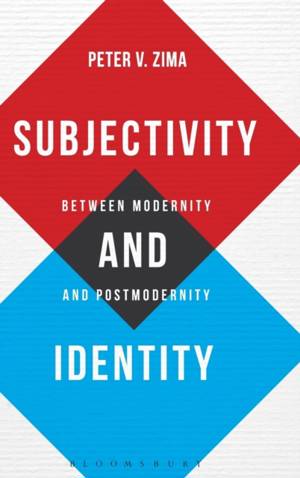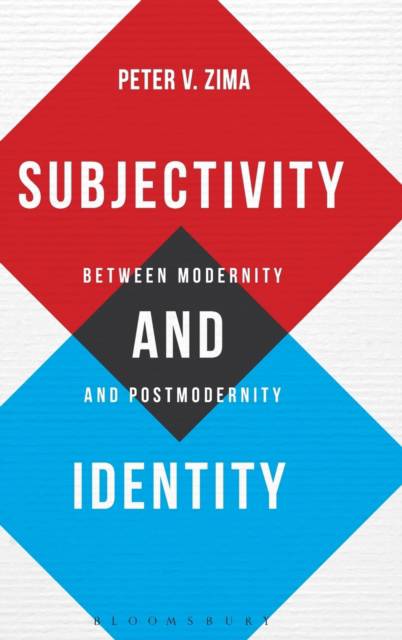
- Afhalen na 1 uur in een winkel met voorraad
- Gratis thuislevering in België vanaf € 30
- Ruim aanbod met 7 miljoen producten
- Afhalen na 1 uur in een winkel met voorraad
- Gratis thuislevering in België vanaf € 30
- Ruim aanbod met 7 miljoen producten
Zoeken
€ 322,45
+ 644 punten
Uitvoering
Omschrijving
Subjectivity and Identity is a philosophical and interdisciplinary study that critically evaluates critically the most important philosophical, sociological, psychological and literary debates on subjectivity and the subject. Starting from a history of the concept of the subject from modernity to postmodernity - from Descartes and Kant to Adorno and Lyotard - Peter V. Zima distinguishes between individual, collective, mythical and other subjects.
Most texts on subjectivity and the subject present the topic from the point of view of a single discipline: philosophy, sociology, psychology or theory of literature. In Subjectivity and Identity Zima links philosophical approaches to those of sociology, psychology and literary criticism. The link between philosophy and sociology is social philosophy (e.g. Althusser, Marcuse, Habermas), the link between philosophy and literary criticism is aesthetics (e.g. Adorno, Lyotard, Vattimo). Philosophy and psychology can be related thanks to the psychological implications of several philosophical concepts of subjectivity (Hobbes, Stirner, Sartre).Specificaties
Betrokkenen
- Auteur(s):
- Uitgeverij:
Inhoud
- Aantal bladzijden:
- 344
- Taal:
- Engels
- Reeks:
Eigenschappen
- Productcode (EAN):
- 9781780937809
- Verschijningsdatum:
- 18/06/2015
- Uitvoering:
- Hardcover
- Formaat:
- Genaaid
- Afmetingen:
- 156 mm x 234 mm
- Gewicht:
- 657 g

Alleen bij Standaard Boekhandel
+ 644 punten op je klantenkaart van Standaard Boekhandel
Beoordelingen
We publiceren alleen reviews die voldoen aan de voorwaarden voor reviews. Bekijk onze voorwaarden voor reviews.








